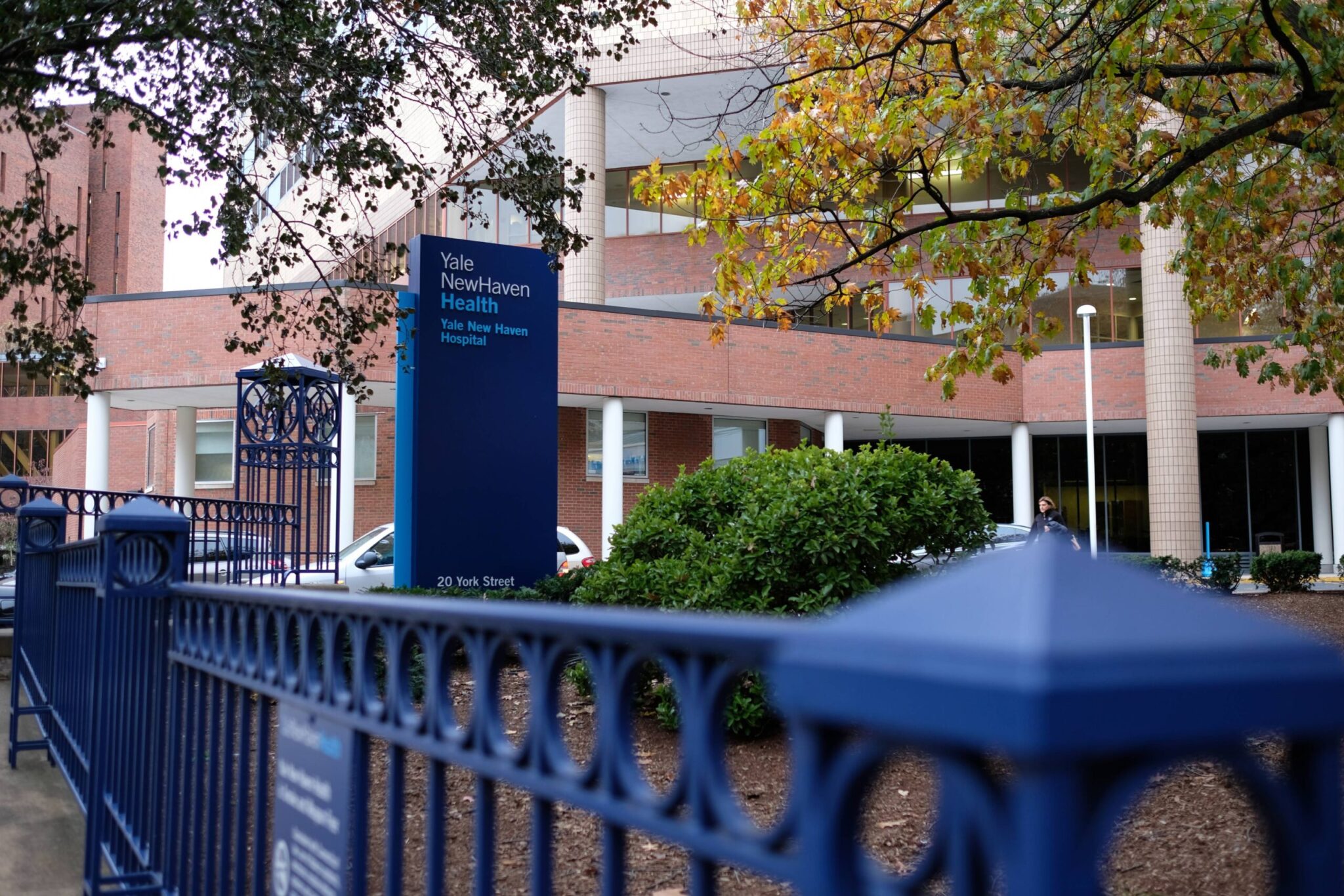Yale New Haven Health addresses burnout of health care professionals through peer-to-peer forums
Yale New Haven Health is working with Yancy Forums to enhance connection among health care workers.

Eric Wang, Senior Photographer
Burnout among health care employees is a serious and growing phenomenon in the United States. A recent study found that nearly half of all U.S. physicians intend to quit their jobs within two to three years due to the stresses of the health care industry.
Over the past few years, Yale New Haven Health has organized forums for physicians, nurses and other staff members to come together and discuss the difficulties of working in health care in response to this burnout trend.
“What we’re doing here is providing a framework where healthcare providers, physicians and nurses can interact with each other,” said Earl Yancy ’72, founder of Yancy Forums, a Connecticut-based professional development company that is conducting the forums alongside the health system. “Together, they can help each other realize not just professional goals, but also personal goals, from their well-being and to family.”
In 2010, Yancy founded Yancy Forums to create spaces in professional industries for high-stress workers to exchange their knowledge and experiences. Since then, they have worked with educators, school administrators and businesspeople in conducting these forums.
The health system piloted its inaugural physicians-only forum in 2020 to help mid-career physicians develop leadership, though these spaces became more important during the pandemic, when doctor burnout rates increased and accordingly led to a major decline in workplace satisfaction and overall well-being.
Kristine Olson, the chief wellness officer at Yale New Haven Hospital, recently surveyed 30 hospital physicians, advanced clinicians, residents and associates to evaluate the forum’s efficacy and impact on their personal well-being, professional development and institutional loyalty.
For Olson, the survey showed encouraging outcomes for the initiative. Seventy-one percent said they are more likely to remain with the health system for the duration of their careers, 83 percent said they now have a greater sense of belonging at Yale New Haven Health and 94 percent felt more confident to emerge as a leader.
“To hear that people felt more confident to emerge as a leader, I think that bodes well for the future,” Olson said. “So, I think that the Yancy Forums are hitting the target as far as making people feel like they have more voice and agency, and are more calm, collected and in control.”
In 2021, due to the underrepresentation of Black health care workers, Olson said that the health systems began conducting forums with Black residents and students. Olson feels that these support groups are crucial for elevating the representation of practicing Black physicians. This increased support and advocacy for physicians can then help patients feel heard and represented. With these efforts to improve the experiences of physicians, both patients and practitioners benefit.
Yale New Haven Health, following the success of the initial forums, has since then expanded its offerings, creating forums for Hispanics, women and department leaders since 2021. With these new groups, Olson is optimistic that the larger sample sizes will allow the health system to further examine the effectiveness of these forums at curbing physician burnout. She noted that the group’s collegial spirit and small size is beneficial.
“Collegiality, though it is different from some of the other initiatives we have, is very comprehensive,” Olson said to the News. “It has an emphasis on diversity, equity and inclusion, such that people have a unique outlet where they can go to talk about their experiences if they otherwise feel underrepresented.”
Olson and others at Yale New Haven Health are working to implement other initiatives that will improve their colleagues’ sense of connectedness, empowerment and belonging in the workplace.
For the health system, addressing physician and health care professional burnout is a top priority.
“The more we can get buy-in and support from those at the very top, the more we can move this priority from Yale New Haven Hospital and into the world,” Olson said. “This is something that we can move the needle on to improve our work-life well-being in our society. I think we can make progress faster.”
Deputy Chief Medical Officer at Yale New Haven Health Michael Ivy said that leadership is essential in addressing burnout. Effective leaders can help garner support in confronting healthcare workers’ problems and developing the next generation of leaders to improve structural issues.
Ivy believes that strategies used by Yancy Forums can serve as a road map for Yale New Haven Health and hospital systems across the nation to change the status quo.
“We are looking for solutions to improve the quality of the leadership,” Ivy said. “Originally, our outreach to Yancy Forums was around mid-career physicians who we were trying to help develop as leaders. I think [the forums] helped all of them. It was an incredibly valuable experience.”
Ivy noted the positive feedback and value provided by Yancy Forums.
Most attendees are willingly and enthusiastically participating in the forums due to the results and value they have provided.
“One of the things the Yancy Forums has been really good at is this idea of connection; the members become very connected to each other,” Ivy said. “I think what that creates is real protection against burnout.”
Yale New Haven Health has more than 7,500 university and community physicians and advanced practitioners.
Correction 10/4: Michael Ivy was previously identified as the deputy chief executive officer at Yale New Haven Health but is the deputy chief medical officer. The article has been updated to address this error.







